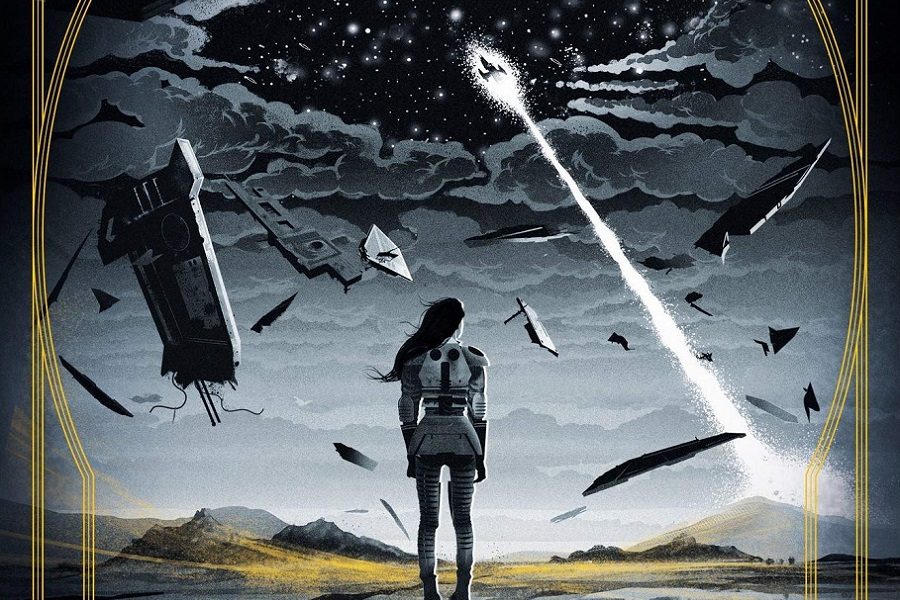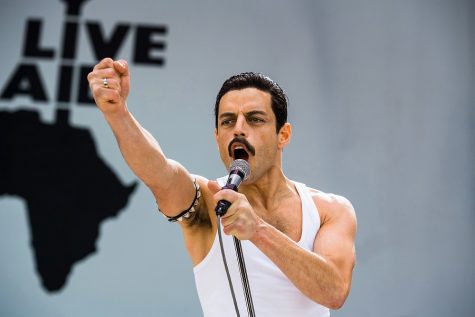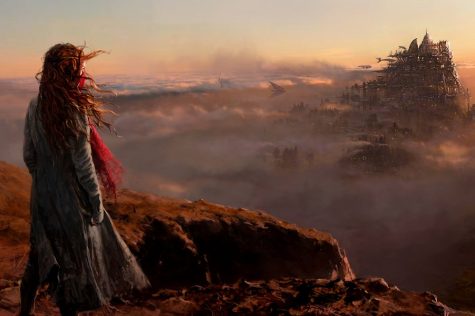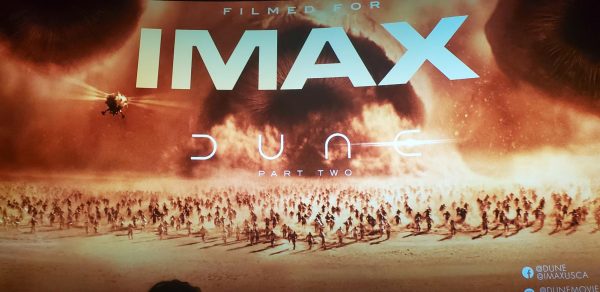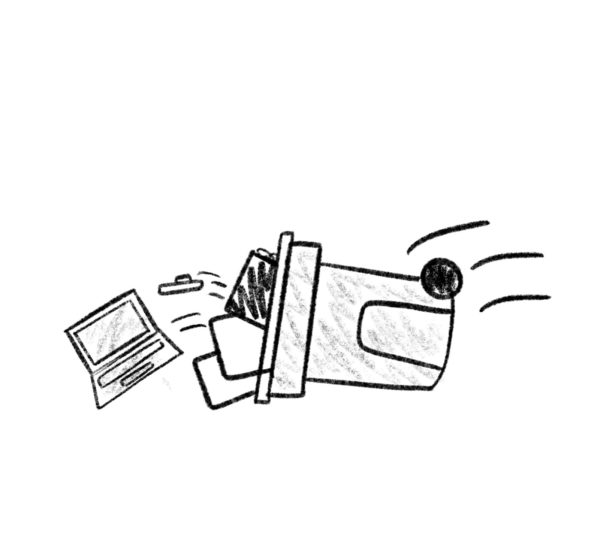Book review: “Skyward” blasts off with joyous and potent sci-fi fare
“Skyward” by Brandon Sanderson defies the odds with a riveting, powerful sci-fi adventure. Read one WSS reporter’s review of the new novel.
“Skyward” UK cover. In this article Edward Keen ’20 lists several books to try out during the upcoming vacation.
It is always a pleasure whenever an author, a filmmaker or any creator of sorts takes a stab at something a far reach out of their comfort zone. It’s fair to say that their endeavor into territory yet to be explored by them may turn out to be imperfect. I’ve endured enough misses to figure out that, in a lot of cases, sticking to the status quo may have actually served best for the creator-in-question after all. Still, seeing someone go for a risk and trek into something new gains my respect, even if the final product doesn’t always end up matching the risks that were taken.
The latest person to take a step out of their comfort zone for their work is author Brandon Sanderson. Starting his career in the upturn of the century, Sanderson has been known for constantly churning out high-quality epic fantasy novels for adults that base around politics and magic systems. “Skyward” isn’t anything like his fantasies. Described as book one of a Young Adult sci-fi series that’s part “Ender’s Game,” part “Top Gun” and part “How to Train Your Dragon,” it takes him to new areas.
For obvious reasons, I went in with skepticism. Fortunately, my apprehension was misplaced, as Sanderson has created an imaginative, cinematic joy that proves he is at the top of the game in writing.
Sanderson has created an imaginative, cinematic joy that proves he is at the top of the game in writing.
War has ravaged Detritus for ages. 80 years ago, humans landed on the planet and got caught in the middle of an intergalactic war with an alien race called the Krell. Ever since then, pilot crews have been sent up in constant battles against the Krell to stop them from destroying the last of the human population.
Preeminent parts of “Skyward” are the flight scenes. I wasn’t expecting much from these scenes since reading action has always felt feeble compared to experiencing it in movies or games. Oftentimes, action in books turns out to be tedious instead of the absorbing nature it wants to be. There’s something about the action in “Skyward” that diverges from the standard. Maybe it is because of the inventive nature of them; imaginative tricks are constantly hidden up Sanderson’s sleeve which make the dogfighting sequences fancier than just maneuvers and explosions. Maybe it’s the intelligence brought in and how action isn’t simply a brainless enjoyment device; the mechanics of flying are examined in no small detail and you get to learn the ways gravitational forces work against the body in flight (Sanderson researched this firsthand by interviewing real pilots on their experiences.) Either way, action reaches pinnacle levels in this.
However much I would’ve relished reading 500 pages only dedicated to Sanderson’s spectacular action, that wouldn’t be enough to fulfill a complete novel. There would need to be a riveting story and cast of characters to accompany it to make it fully work. Sanderson delivers on both of these fronts.
“Skyward” is told through the first person perspective of Spensa Nightshade (aka Callsign: Spin), who has always wanted to be a pilot since her childhood. But the world has been turned against her since her fighter pilot father Zeen (Callsign: Chaser) infamously deserted his position and was killed by his own flight crew in the ensuing devastation. Since her father’s death, she has been branded the daughter of a coward and barred from entering Flight School to receive pilot education. However life finds a way for Spensa, and soon she is able to follow her dreams of becoming a pilot where she is eager to prove her worth to the world.
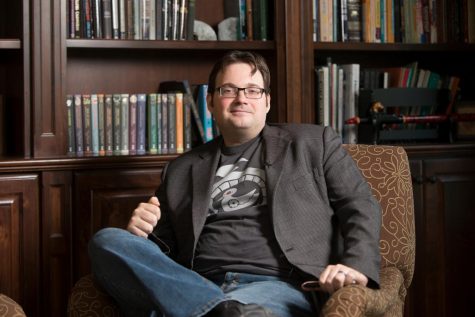
It’s hard to feel much for Spensa when you first meet her. Her personality is outlandish and bottles up a rebellious, angry-at-life psyche. In the opening chapters, uncanny similarities can be drawn between her and essentially every other rebellious female character in the vein of Katniss Everdeen from “The Hunger Games.” Yet, she is easily one of the best characters that I’ve read all year. Delicate care is given to allow the reader to feel immense empathy towards her situation. What would you do if your entire life was was determined around one wrong move from someone else? If the world judged you not from your own choices but on a pretense of what they think you will do? Life is bottom of the barrel for Spensa and it’s no wonder that her actions play out the way they do. Anyone in her shoes would act the same.
It isn’t limited to the empathetic elements in making Spensa work. Another plus is her dedication to succeed no matter the cost, no matter the challenges that are stacked on her. Even after a strand of luck allows her to start training as a pilot, the odds are continually thrown against her favor. While all of her companion cadets are treated to a luxurious life, she’s stuck living in a cave with only rats to eat. Despite this, her determination to flying doesn’t die down. Flying doesn’t come as naturally to Spensa as she assumed, so she gradually becomes better and better at the task through hard work by training day and night.
Standouts are M-Bot, a jokative AI that doesn’t understand the mannerisms of humans, Jorgen (Callsign: Jerkface), a spoiled cadet who carries more compassion than your typical jock-like bully character, Rodge McCaffrey (Callsign: Rig), an intelligent and newfangled peer who aids Spensa candidly and General Cobb (Callsign: Mongrel), the gruff instructor of the flight trainees with empirical fatigue from battle.
War plays a sweeping role in the foreground of the story. The best point of reference to the War of Detritus is many of the wars that have shaken the world in real life. The humans/Krell conflict never seems to end and yields countless deaths; several cadets in Spensa’s flight crew die after being thrown into the war despite their lack of experience. War mounts tolls in terms of numbers but also in the consciences of those fighting.
Themes of cowardice, bravery and identity are explored. What makes a coward, what makes someone a hero and how can external views affect one’s patriotism and will to fight? What is the grey area between doing what you think is right and fighting for a greater cause? Recurring motifs in “Skyward” are the definition of being a coward and following through with your identity.
I would not hesitate to recommend “Skyward” to anyone looking for a joyous sci-fi time combined with powerful characters and potent themes. Brandon Sanderson’s talent seems to have no end, and I will definitely be on the lookout for the sequel “Starsight” to be released next year. Grade: A+
Your donation will support the student journalists of West High School. Your contribution will allow us to purchase Scholarship Yearbooks, newsroom equipment and cover our annual website hosting costs.
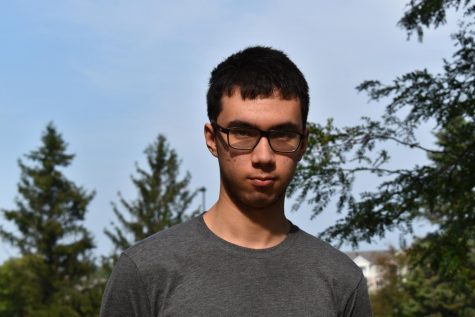
Edward Keen is a senior and this is his second year on staff, where he is Arts Editor. In his free time, he enjoys reading.


